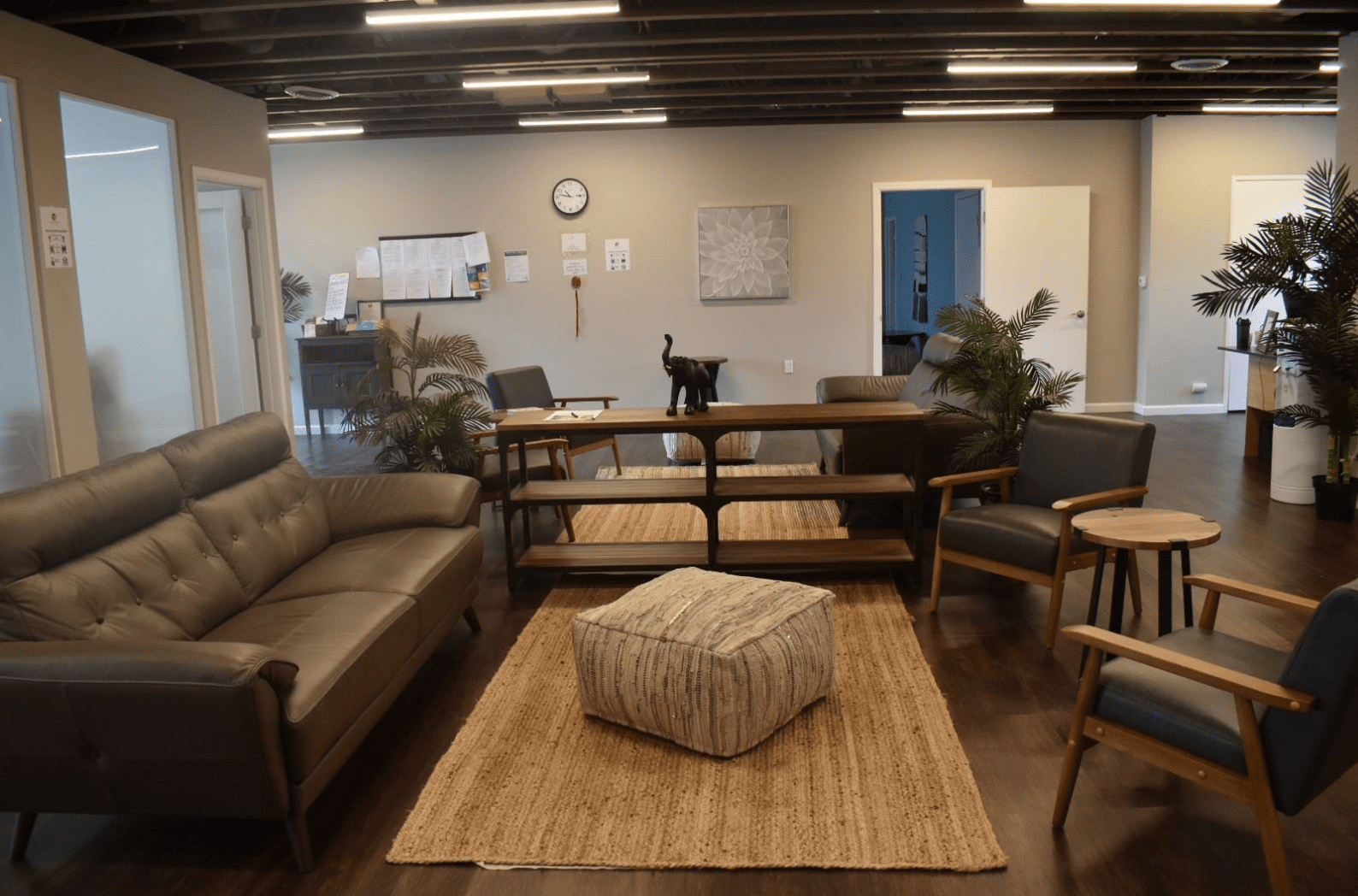Medication-Assisted Treatment (MAT) has become a cornerstone of modern addiction treatment, particularly for opioid use disorder. Despite its proven effectiveness, MAT remains surrounded by misconceptions that can prevent people from seeking the help they need. At Tres Vistas Recovery in San Juan Capistrano, we’ve heard these myths countless times—and we’re here to set the record straight.
Understanding Medication-Assisted Treatment
Before we tackle the myths, let’s clarify what MAT actually is. Medication-Assisted Treatment combines FDA-approved medications (such as buprenorphine, methadone, or naltrexone) with counseling and behavioral therapies to treat substance use disorders. It’s a comprehensive approach that addresses both the physical and psychological aspects of addiction.
According to the Substance Abuse and Mental Health Services Administration, MAT has been shown to improve patient survival, increase retention in treatment, decrease illicit opioid use, and improve patients’ ability to maintain employment.
Myth #1: “MAT Just Replaces One Addiction with Another”
The Truth: This is perhaps the most harmful and persistent myth about MAT. The medications used in MAT are not simply substituting one addiction for another—they’re providing medical treatment for a chronic disease.
Here’s the difference: When someone uses illicit opioids like heroin or misuses prescription painkillers, they experience intense highs and lows that interfere with daily functioning. MAT medications like buprenorphine work differently. They:
- Stabilize brain chemistry without producing euphoria
- Relieve cravings and withdrawal symptoms
- Allow the brain to heal from the damage caused by addiction
- Enable patients to focus on recovery and rebuilding their lives
Think of it this way: We don’t say that someone with diabetes is “addicted” to insulin, or that someone with high blood pressure is “dependent” on their medication. MAT medications are legitimate medical treatments prescribed and monitored by healthcare professionals.
Myth #2: “You’re Not Really Sober If You’re on MAT”
The Truth: Sobriety means different things to different people, but in the medical community, being in recovery while on MAT is absolutely considered sobriety. You’re not using substances to get high—you’re taking prescribed medication to manage a medical condition.
The goal of MAT is to restore normal brain function and behavior. Patients on MAT can:
- Hold down jobs and maintain employment
- Rebuild relationships with family and friends
- Engage meaningfully in therapy and personal growth
- Live productive, fulfilling lives
At Tres Vistas Recovery, we’ve seen countless individuals transform their lives through our medication-assisted treatment programs. They’re not just surviving—they’re thriving in their recovery journey.
Myth #3: “MAT Is Just a Crutch—You Should Be Able to Quit Cold Turkey”
The Truth: Opioid addiction fundamentally changes brain chemistry. Expecting someone to overcome this through willpower alone ignores the biological reality of addiction as a chronic disease.
Research from the National Institute on Drug Abuse consistently shows that MAT is more effective than abstinence-only approaches. According to studies, patients receiving MAT are:
- Significantly more likely to remain in treatment
- Less likely to use illicit opioids
- Less likely to engage in criminal activity
- Less likely to contract infectious diseases like HIV and Hepatitis C
- Less likely to experience fatal overdose
“Cold turkey” approaches to opioid addiction are not only less effective—they can be dangerous. Opioid withdrawal can be extremely uncomfortable and even life-threatening in some cases. MAT provides a safer, medically supervised path to recovery.
Myth #4: “You’ll Be on MAT Forever”
The Truth: While some patients benefit from long-term MAT, many successfully taper off medication when they’re ready. The duration of MAT varies based on individual needs, and there’s no one-size-fits-all timeline.
Some key points about MAT duration:
- Treatment length should be individualized based on patient progress
- Research shows that staying on MAT for at least 12 months significantly improves outcomes
- Some patients may need longer-term treatment, and that’s okay
- The decision to taper should be made collaboratively between patient and healthcare provider
- Premature discontinuation increases relapse risk
At Tres Vistas Recovery, we work with each client to develop a personalized treatment plan that respects their goals and timeline while prioritizing long-term success.
Myth #5: “MAT Doesn’t Address the Root Causes of Addiction”
The Truth: Effective MAT programs never rely on medication alone. At Tres Vistas Recovery, our MAT approach is integrated with comprehensive therapeutic support, including:
- Cognitive Behavioral Therapy (CBT) to identify and change negative thought patterns
- Dialectical Behavior Therapy (DBT) to improve emotional regulation
- Individual therapy to address underlying trauma and mental health issues
- Group therapy to build peer support and community
- Family therapy to repair relationships and strengthen support systems
- Holistic therapies like yoga and mindfulness to address mind-body wellness
The medication stabilizes brain chemistry and reduces cravings, creating a foundation that allows patients to engage meaningfully in therapy and address the psychological, social, and behavioral aspects of addiction.
Myth #6: “MAT Is Only for Opioid Addiction”
The Truth: While MAT is most commonly associated with opioid use disorder, medications can also support recovery from alcohol use disorder and, in some cases, other substance dependencies.
Medications used in addiction treatment include:
- For opioid use disorder: Buprenorphine, methadone, naltrexone
- For alcohol use disorder: Naltrexone, acamprosate, disulfiram
- For tobacco use disorder: Nicotine replacement, bupropion, varenicline
At Tres Vistas Recovery, we assess each patient’s unique situation and determine whether medication could support their recovery journey. Our comprehensive approach extends to cocaine addiction treatment, prescription drug treatment, and other substance use disorders.
Myth #7: “MAT Makes You Tired and Foggy All the Time”
The Truth: When properly prescribed and dosed, MAT medications should help you feel normal—not sedated or impaired. In fact, most patients report feeling more clear-headed on MAT than they did while actively using substances.
Some patients may experience mild side effects when starting MAT, but these typically subside as the body adjusts. Common experiences include:
- Initial adjustment period of a few days to weeks
- Gradual improvement in sleep patterns
- Increased energy and motivation as recovery progresses
- Better cognitive function compared to active addiction
If you’re experiencing persistent side effects, your healthcare provider can adjust your dosage or explore alternative medications. The goal is to find the right medication and dose that allows you to function optimally.
Myth #8: “MAT Is Too Expensive”
The Truth: While cost concerns are valid, MAT is often more affordable than many people realize. At Tres Vistas Recovery, we work with numerous insurance providers to make treatment accessible.
Consider these points:
- Many insurance plans cover MAT as part of addiction treatment services
- The cost of MAT is significantly less than the financial burden of active addiction (including legal fees, lost employment, healthcare costs from overdose or infection)
- Outpatient MAT programs are generally more affordable than residential treatment
- We accept various insurance providers and can help verify your coverage
The investment in proper treatment pays dividends through improved health, relationships, employment, and quality of life.
Myth #9: “Anyone Can Prescribe MAT Medications”
The Truth: MAT medications require specialized prescribing privileges. Providers must have specific training and, in many cases, special waivers to prescribe medications like buprenorphine.
At Tres Vistas Recovery, our MAT program is overseen by qualified medical professionals who:
- Have specialized training in addiction medicine
- Understand the complexities of substance use disorders
- Can provide comprehensive medical supervision
- Work collaboratively with therapists and counselors
- Monitor patient progress and adjust treatment as needed
This specialized care ensures that MAT is delivered safely and effectively as part of a comprehensive treatment program.
Myth #10: “MAT Doesn’t Really Work”
The Truth: The evidence overwhelmingly supports the effectiveness of MAT. Research from the Centers for Disease Control and Prevention and other federal agencies consistently demonstrates that MAT:
- Reduces opioid use by 50-70% compared to non-medication approaches
- Decreases overdose death rates by 50% or more
- Improves treatment retention rates
- Reduces criminal activity associated with obtaining drugs
- Improves birth outcomes for pregnant women with opioid use disorder
- Increases patients’ ability to maintain employment and housing
According to the National Institute on Drug Abuse, people who receive MAT for opioid use disorder cut their risk of death from all causes by half or more compared to those who don’t receive medication.
The Science Behind MAT
Understanding how MAT works can help dispel many of these myths. Opioid addiction changes the brain’s reward system, creating powerful cravings and withdrawal symptoms that make quitting extremely difficult.
MAT medications work by:
- Binding to opioid receptors in the brain (but without producing euphoria)
- Normalizing brain chemistry disrupted by addiction
- Blocking the effects of other opioids if they’re used
- Reducing cravings and withdrawal symptoms
- Allowing the brain to heal while the person engages in recovery work
This isn’t enabling addiction—it’s treating it with evidence-based medicine.
MAT as Part of Comprehensive Care at Tres Vistas Recovery
At Tres Vistas Recovery, we don’t view MAT as a standalone solution. It’s one component of our comprehensive approach to addiction treatment. Our programs include:
Intensive Outpatient Program (IOP): Flexible treatment involving three to five three-hour sessions per week, combining individual therapy, group therapy, family counseling, and holistic therapies.
Partial Hospitalization Program (PHP): More intensive care with six hours of daily treatment for five days each week, ideal for those transitioning from residential treatment or needing more structured support.
Integrated Behavioral Health: Our experienced clinicians address co-occurring mental health disorders like depression, anxiety, and PTSD alongside addiction treatment.
Holistic Therapies: We incorporate yoga, mindfulness, and nutritional counseling to support whole-person healing.
Moving Forward: Making an Informed Decision About MAT
If you or a loved one is struggling with opioid use disorder, don’t let myths and misconceptions prevent you from exploring MAT as a treatment option. The decision to pursue MAT should be based on:
- Accurate medical information
- Consultation with qualified healthcare professionals
- Your individual circumstances and goals
- Evidence-based research on treatment effectiveness
At Tres Vistas Recovery in San Juan Capistrano, we’re committed to providing personalized, compassionate care that meets you where you are in your recovery journey. Our team can help you understand whether MAT might be right for you and answer any questions you have about the process.
Take the First Step Toward Recovery
Recovery from opioid addiction is possible, and you don’t have to do it alone. Medication-Assisted Treatment, combined with comprehensive therapeutic support, offers a proven path to lasting sobriety.














